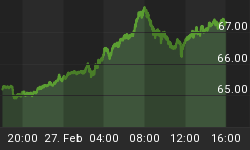Financial market trading should be a little crisper today as the bigger players return after long Easter holiday break.
The focus this morning will be on the U.S. Retail Report. Traders are expecting a rise in retail sales due to greater consumer spending. The thought is that consumers have become more optimistic about the economy because of the recent action by the Fed and the rise in the stock market. The main concern will be whether rising unemployment has had a negative effect on retail sales.
After the bell yesterday Goldman Sachs announced better than expected earnings. There is talk today that they are prepared to pay back their TARP money. Traders are curious as to how the Treasury will handle this payback. As of last week the government seemed to think that they had the right to refuse any paybacks citing that they would use bank stress tests to determine if the move was justified. The government is also threatening that once the money is paid back; the entity would have a hard time getting bailed out in the future should any serious financial problems arise.
At this time it's hard to tell if the banks are making a profit because of improvements in the economy and credit markets or because they have been able to borrow at 0% and lend at 4% or better.
All eyes are on the banking industry over the next two weeks as the majors all report first quarter earnings. Wells Fargo triggered a huge rally late last week when they issued guidance for better than expected earnings.
Later this week Citigroup and JP Morgan will announce earnings. This will be followed by Bank of America, Morgan Stanley and Wells Fargo next week. The decision traders will have to make is how much of these reports have already been priced in to the indices.
The job of the Fed is going to be critical if the economy begins to recover. Its job is to maintain order in the interest rate market to prevent a sudden rise in rates. If the Fed starts to see rates rise excessively then they will come into the market and buy government instruments and mortgages. These actions will have the same effect as an interest rate cut. The objective of the Fed is to prevent inflation.
Precious metals seem to be forming a support base. Any weakness in the equity markets could send this sector higher. Traders have been selling gold and silver in anticipation of a major sale of inventory by the International Monetary Fund.
Industrial metals such as Platinum and Copper have posted huge gains recently on thoughts of greater demand because of a global economic recovery. News that China may add additional funds to their existing stimulus package is helping to create another leg up.
The currency markets may trade mixed over the near-term. Commodity based currencies such as the Canadian Dollar could post strong gains as grain and industrial metal markets recover. The economies in Europe and the U.K. may not be strong enough to sustain a rally. The recent buying in the Euro and the British Pound has all been related to increased trader appetite for risk rather than economic improvement.
Crude oil supplies are just too high to support a strong rally. In order to sustain gains, the U.S. economy has to show better signs of a recovery. Over the weekend a report came out citing a drop in demand for energy into 2010. This didn't sit well with the market. The facts are bearish, but speculators still have the power to trigger sharp rallies. Look for a range bound market.
Moving to the Grain complex, drier weather is helping to improve corn fieldwork. This is expected to put pressure on May Corn. Plantings are behind schedule. Usually by this time of the year at least 6% of the fieldwork has been completed. This year only 2% has been finished. As the weather improves, look for farmers to work hard to catch up. Thoughts of plantings getting back to average will help push prices lower.
A new bull market may arise in the Sugar market. Production is expected to be down this year as demand is expected to outstrip supply. India is expected to have a substantially reduced crop. This means they are expected to be major players in the import market.
For weeks traders had been bidding up prices expecting a huge order from India, but the government put a tariff on imported sugar which sent prices sharply lower. In a political move over the weekend, the government of India lifted the ban on imports. This freed up buyers to go to the open market to restock supplies. This action could trigger a sharp rise in the market over the near term.















